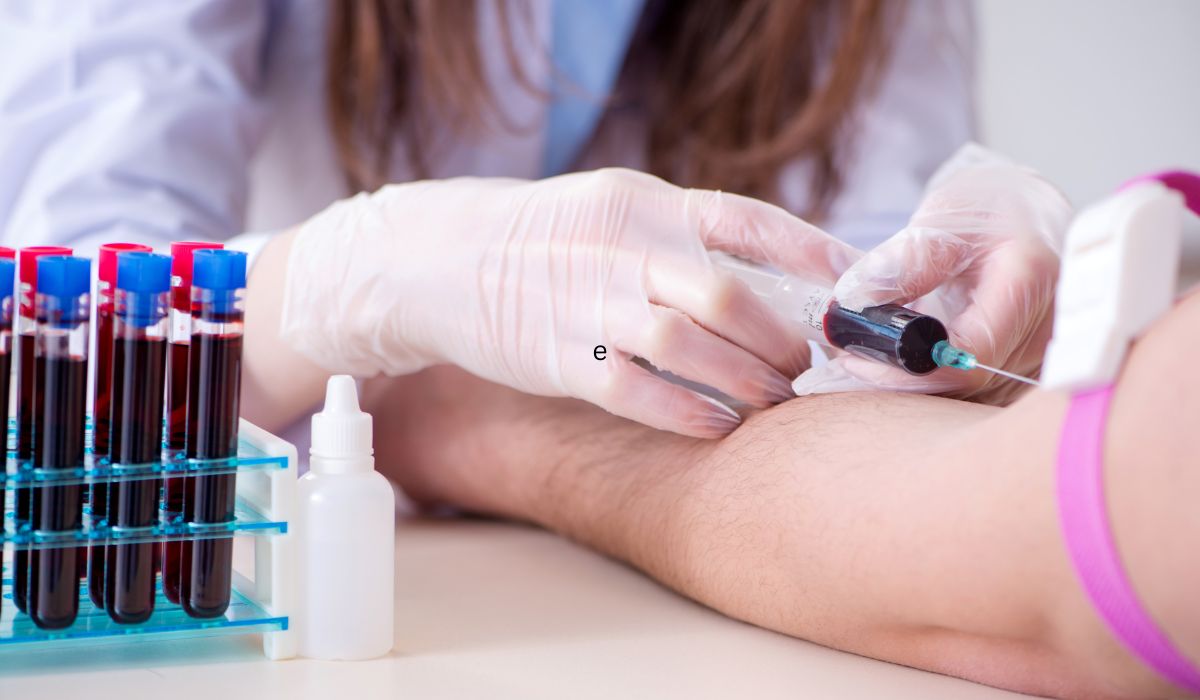Does Bromazolam Show Up on a Drug Test?
Bromazolam is a drug that has become more common in recent years. Many people want to know: does bromazolam show up on a drug test? The answer is not always simple. Drug tests look for certain drugs, their metabolites, and how the body processes them. At Lynk Diagnostics, a trusted drug testing center for rehab facilities, we work to give clear answers about how this sedative shows up in tests and the risks it carries.
What Is Bromazolam?
Bromazolam is a drug that belongs to the benzodiazepine class. These drugs act on the central nervous system and are often used as anxiolytic medications to reduce anxiety, help with sleep, and calm the body.
Like alprazolam (Xanax), diazepam (Valium), clonazepam (Klonopin), and lorazepam (Ativan), bromazolam can slow down the nervous system. It is a hypnotic and sedative, which means it can make a person very sleepy or relaxed.
How Does Bromazolam Work in the Body?
When someone takes bromazolam, their body breaks it down through a process called metabolism. This creates a metabolite, which drug tests can sometimes detect.
Because it works like other benzodiazepines such as temazepam, triazolam, midazolam, estazolam, and flunitrazepam, it affects the brain and body in powerful ways. These drugs bind to receptors in the brain and calm brain activity, which may prevent seizure, reduce anxiety, and promote sleep.
Does Bromazolam Show Up on a Drug Test?
Many people wonder if bromazolam shows up in a standard drug test. The truth is: not all tests look for it.
- A urine test may detect bromazolam if it checks for a wide range of benzodiazepines.
- Basic drug screens often miss it because it is not an FDA-approved medication in the U.S.
- Advanced toxicology panels, like those offered at Lynk Diagnostics, can detect bromazolam and related metabolites.
Why Standard Drug Tests May Miss Bromazolam
Some tests are designed to only look for common drugs like opioids, cocaine, or THC. Basic tests might only check for benzodiazepines such as alprazolam, diazepam, or lorazepam.
Because bromazolam is newer, it may not always trigger a positive result unless the test is sensitive. That is why rehab centers and medical professionals use labs like Lynk Diagnostics for accurate results.
Types of Drug Tests That May Detect Bromazolam
Urine Test
The most common method is the urine test. This type of test may pick up bromazolam or its metabolites if it is designed to detect a broad range of benzodiazepines.
Advanced Toxicology Screening
Special toxicology screenings can find even small amounts of bromazolam in the body. These tests measure how the drug is broken down during metabolism and identify the unique chemical traces left behind.
Rehab Facility Testing
At Lynk Diagnostics, we work with rehab centers that need advanced detection tools. Many people entering rehab have used drugs like bromazolam along with xylazine, opioids, or other substances. That makes it critical to know exactly what is in the system.
Why Do People Take Bromazolam?
Bromazolam is sometimes sold in tablet form. Some people take it because they believe it works like other benzodiazepines such as temazepam, triazolam, or midazolam.
It may cause:
- Relaxation
- Sleepiness (hypnotic effects)
- Reduced anxiety
- Seizure prevention
But it also comes with risk, especially when taken without medical supervision.
Risks of Bromazolam Use
Using bromazolam carries serious dangers. Since it is not an approved medication, people may not know the proper dose or how strong a pill really is.
Side Effects and Dangers
- Extreme sleepiness (sedative effects)
- Breathing problems when mixed with opioids
- Memory loss and confusion
- Risk of overdose when combined with alcohol or other drugs
When mixed with other drugs like chlordiazepoxide or xylazine, the risks go up even higher.
Bromazolam, Addiction, and Rehab
Like many benzodiazepines, bromazolam can cause addiction. People may start using it to calm anxiety, but over time the body depends on it.
Rehab centers need to know if a person has been using bromazolam so they can give safe treatment. At Lynk Diagnostics, our testing helps rehab facilities detect hidden drugs that might not show up on standard tests.
How Long Does Bromazolam Stay in the Body?
How long bromazolam stays in the body depends on the dose, the person’s metabolism, and other factors like age or health.
- In some people, traces may last several days.
- A urine test may detect it for 2–7 days.
- More advanced toxicology tests may find it for longer periods.
Bromazolam Compared to Other Benzodiazepines
Here’s how bromazolam relates to other benzodiazepines often found in drug testing:
- Alprazolam – Commonly tested for.
- Diazepam – Detected on most basic screens.
- Clonazepam – Shows up on extended tests.
- Lorazepam – Found in many urine tests.
- Temazepam, midazolam, triazolam, estazolam, flunitrazepam, chlordiazepoxide – Detected on broader panels.
Bromazolam is less likely to appear unless advanced testing is used.
Why Rehab Facilities Use Lynk Diagnostics
Rehab centers rely on Lynk Diagnostics for accurate drug testing. Our lab is dedicated to finding substances like bromazolam, even when other tests miss them. Detecting drugs early helps facilities create safe recovery plans for people struggling with addiction.
FAQs About Bromazolam and Drug Tests
Does bromazolam show up on a drug test?
It depends on the test. Standard tests may miss it, but advanced toxicology screenings from Lynk Diagnostics can detect it.
How long does bromazolam stay in urine?
A urine test may detect bromazolam for 2–7 days, depending on the dose and the person’s metabolism.
Is bromazolam addictive?
Yes. Like other benzodiazepines, bromazolam can lead to addiction, withdrawal, and serious health problems.
What happens if bromazolam is mixed with opioids?
Mixing bromazolam with opioids raises the risk of overdose, breathing problems, and even death.
Why should rehab centers test for bromazolam?
Rehab centers need to know what drugs are in a person’s system to treat addiction safely. Lynk Diagnostics helps identify drugs that basic tests may miss.
Conclusion
So, does bromazolam show up on a drug test? The answer depends on the type of test. Basic screens may not catch it, but advanced toxicology tests can. Bromazolam is a risky sedative that works like other benzodiazepines such as alprazolam, diazepam, lorazepam, and clonazepam.
At Lynk Diagnostics, we help rehab centers detect drugs like bromazolam, so patients can get the right care. If you or someone you know is struggling with addiction, proper testing is the first step to recovery.
Sources
- National Center for Biotechnology Information (NCBI): Benzodiazepines Overview
- U.S. National Library of Medicine: Toxicology of Benzodiazepines
- Drug Enforcement Administration (DEA): Controlled Substance Information
- Journal of Analytical Toxicology: Detection of Designer Benzodiazepines
- National Institute on Drug Abuse (NIDA): Drug Testing and Addiction Science








